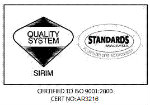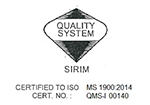Resolving Cryptocurrency Conflicts
In recent developments in the world of digital technology, many Islamic scholars from all over the world have been concerned over the cryptocurrency phenomenon. Dealings concerning cryptocurrency be they in developing, mining, funding or investing are considered non-permissable by some jurists. For instance, Shariah resolutions from Egypt’s Grand Mufti and the Directorate of Religious Affairs issued a fatwa of non-permissability of cryptocurrency specifically Bitcoin.
We can come to terms with the underpinning reasons of why and how such a non-permissable ruling is important as a precaution against unexpected outcomes. The existing verdict (fatwa) on the non-permissablity of cryptocurrency dealings is mainly due to concerns over elements of uncertainty (gharar), excessive risks (khatar), tendency towards potential losses and claims of the disadvantages of decentralised currency and payment system. Therefore, the monetary authority of many countries regulates the cryptocurrency associated with money laundering and terrorist funding.
Naturally, such a ruling is hardly a welcome to technologists. They cannot fathom the reason behind the non-permissability and doubted if it was made in full knowledge of the essential components of cryptocurrency: the blockchain technology and cryptography. Indeed, comprehending technology in-depth poses as a challenge to Islamic scholars and jurists. As a new and fast-growing phenomenon, most people have yet to grasp the full extent of what blockchain is all about.
Blockchain is a continuously growing list of records which are linked and secured using cryptography, resistant to modification, decentralised and distributed efficiently. Transaction records is managed by a peer-to-peer network collectively adhering to a protocol for validating alteration that requires collusion of the network.
In blockchain system, values such as trust, intelligence, autonomy and mutual understanding are encrypted by using protocols and mathematical models. The decentralised application of global network has proven to reduce costs, remove point of failure and prevent double spending while at the same time improve transparency. At present, blockchain is a digital platform used for Internet of Things (IoT), mobiles application, cloud computing, distributed governance and online voting.
Since blockchain is reliable in transforming trust and values into technology, it will definitely be beneficial for other purposes such as in cyber security protocol, supply chain management, networking, insurance, cloud storage, charity and waqf computerisation, healthcare, retail, real estate management and crowdfunding. This technology has the ability to make organisations more transparent, democratic, decentralised, efficient and secure.
With the innovation of the distributed ledger in blockchain, a digital asset is secured and entrusted. In reality, there are neither problems dealing with digital coins nor digitalised fiat money in a bank account. In fact, the origination of the digital value is transferred from fiat currency deposited into a digital wallet and converted to the blockchain of the digital coin and both are reversible. Therefore, both are financial asset and valuable.
From the philosophical perspective, money can be anything of value. The evolution of money demonstrates how money originates from any concurrent items in barter trading, commodity, gold and silver, fiat money and presently the digital coin. The significant characteristic of money is its durability, portability, divisibility, valuable, and ease of acceptability by the population.
Digital coin can be accepted as means of payment, store of value and units of account or even a measurement for a standard deferred payment. Digital coin or cryptocurrency can be considered as an economic utility especially in current business and trade dealings.
Muslims should learn and adopt the blockchain technology by starting to give room for technology to develop. Activities that signify counterfeiting, interest-based dealings, gambling or market speculating in digital coin exchanges, derivatives, stock market or forex are clearly unlawful. It is fair for a central bank to regulates the circulation and supply of money in a country by enforcing relevant guidelines to protect the country’s interest and concern over the excessive risk.
In avoiding a conflicting shariah position among the related authorities, collective research and discourse must be achieved. In this regard, IKIM will be conducting a round table discussion next month on the issue and will gather experts to present their views on cryptocurrency, with discussions on the shariah compatibility, compliance and governance. All are invited.




